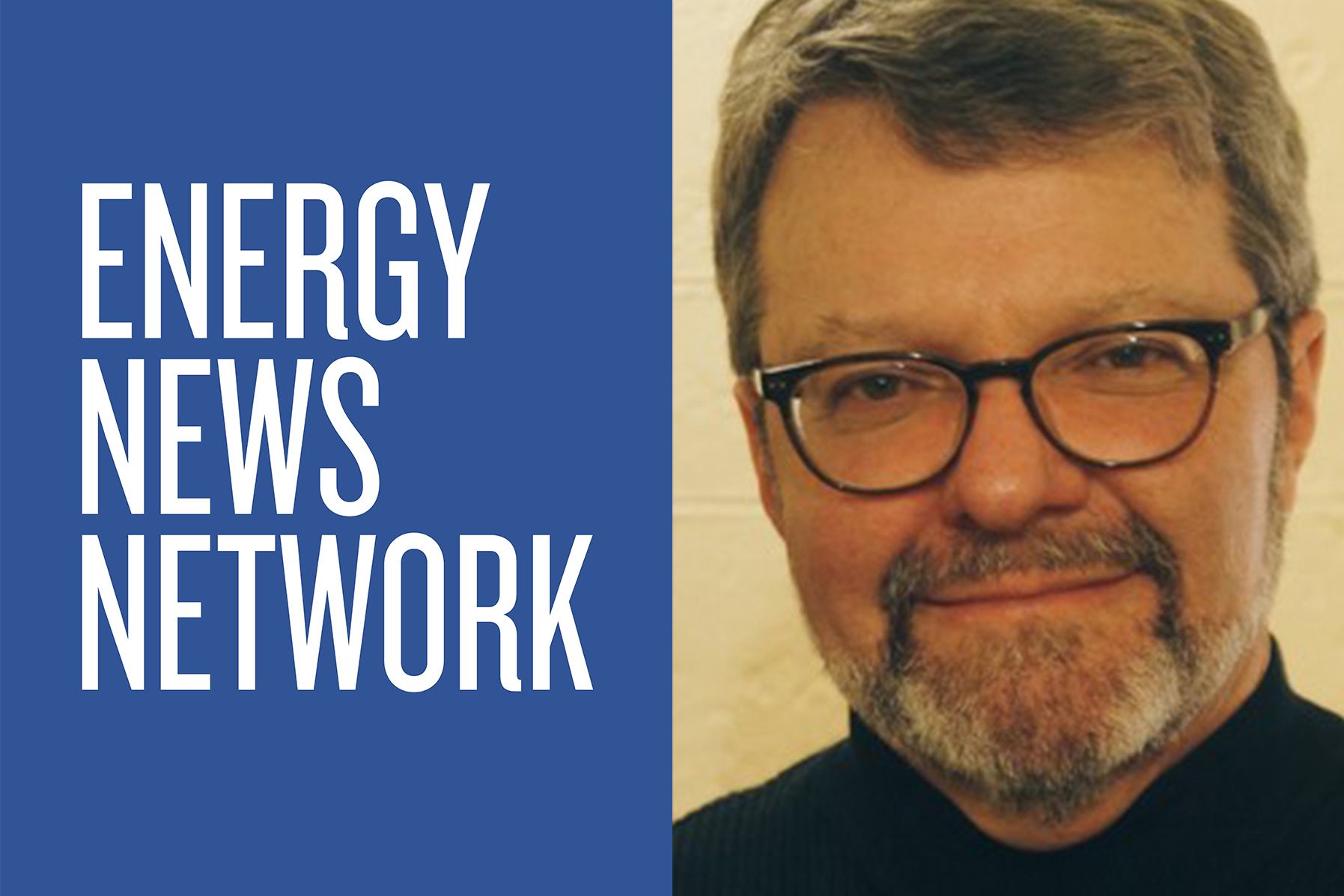 In our “behind the scenes” blog series, get to know our amazing team of dynamic journalists who make the Energy News Network possible. This month, we profile Frank Jossi who reports out of Saint Paul, Minnesota and has been a longtime contributor to the Energy News Network.
In our “behind the scenes” blog series, get to know our amazing team of dynamic journalists who make the Energy News Network possible. This month, we profile Frank Jossi who reports out of Saint Paul, Minnesota and has been a longtime contributor to the Energy News Network.
How did you get your start in journalism?
I grew up in Neenah, Wisconsin which is home to many paper mills, the famed Neenah Foundry and a very good school system. The city sits halfway between Appleton and Oshkosh in an area known as the Fox Valley.
I was a poor high school student who wrote for the student newspaper and won a couple of statewide awards, one for a commentary that upset many students and faculty. I liked that journalism has the power to engage, inform, explain, and enrage. My grades improved, as did my writing!
I wasn’t much good at anything else and curiosity and my desire to know what’s going on is why I am a journalist, unsuitable for other employment.
Tell us about your reporting background so far?
That’s a long story! I’ve been at this a long time. When I was a young guy, I worked in Savannah, Georgia, covering cops, general assignment stories and music— I was the paper’s music critic. From there, I went off to teach on a Fulbright Scholarship in Pakistan and worked on the border in a Peshawar media center during the withdrawal of the Soviet Union from Afghanistan. Upon returning I worked as program director of the World Press Institute in Saint Paul; taught on another Fulbright in Albania, and then embarked on a freelance/contract writer career for the last 24 or so years and have written for dozens of publications and organizations.
When did you begin focusing on energy issues specifically?
In the late 1970’s I wrote a story about solar energy for Madison Magazine. The field died with President Reagan’s election and I didn’t write about it again until the 2000’s, when the clean energy field really picked up and things began to get interesting. I freelanced for Midwest Energy News before becoming the Minnesota correspondent. I also cover sustainability issues in architecture for another publication.
What’s the most difficult situation you’ve encountered as a reporter?
Two things. A long time ago I wrote an investigative series that prompted a state investigation by the Georgia attorney general’s office. One of the contractors who had been ripping off elderly people stopped by to say I was treating him unfairly. We had a decent conversation. Another time was when I taught in a well-armed community—Peshawar, Pakistan. Some of my students would ask what I would do if my family and I were threatened while writing a story. “Bravery,” I said, “has its limits.”
What is a typical day for you as a working journalist?
Before breakfast I stretch on a yoga mat, read the Star Tribune, and a few news’ sites and then sit down to interview people and write. Once or twice a week I work at Fueled Collective, a co-working firm, in downtown Saint Paul. I bike at least 12 to 20 miles nearly every day.
How do you feel about the future of the news business and where do you think things are going?
I’m somewhat optimistic. Our local newspaper, the Star Tribune, continues to innovate and make money. Every year I serve as travel staff for the World Press Institute, which brings ten international journalists to the United States. Over the years I have visited the Center for Investigative Reporting, the Texas Tribune, Frontline, ProPublica and other for-profit and nonprofit media outlets. All have similarities to the Energy News Network, and they represent a new funding model for journalism in the United States. Unfortunately, journalists from abroad live in countries where media philanthropy does not exist so that model is unique to America. We’re lucky in that regard. Call me cautiously optimistic.
Why continue to do journalism in such a tough market?
I love learning something new every day. And to be honest I also have clients who are not media organizations, and I like the variety of working for universities and businesses. I also enjoy writing about people in the arts. It’s hard to make interesting people dull.
Have you received any honors or rewards?
I have won several awards from the Minnesota chapter of the Society for Professional Journalists.
Anything else people should know about you?
I’m heavily involved in my community and have served in leadership roles for a decade on our district council in the Highland Park neighborhood of Saint Paul. We have faced many controversial issues and I have nearly lost friends over some of them. On a lighter note my wife, Judy, and I have a wonderful family. We have two children, a daughter in college studying history and political science and a talented saxophone-playing son in high school. Both need to clean their rooms.
Read Energy News Network stories by Frank Jossi.
The Energy News Network is published by Fresh Energy, a non-partisan, nonprofit organization that advocates for clean energy policy. The Energy News Network is an editorially independent news and information site, and its contents should not be considered to reflect policy positions of Fresh Energy or our donors.
